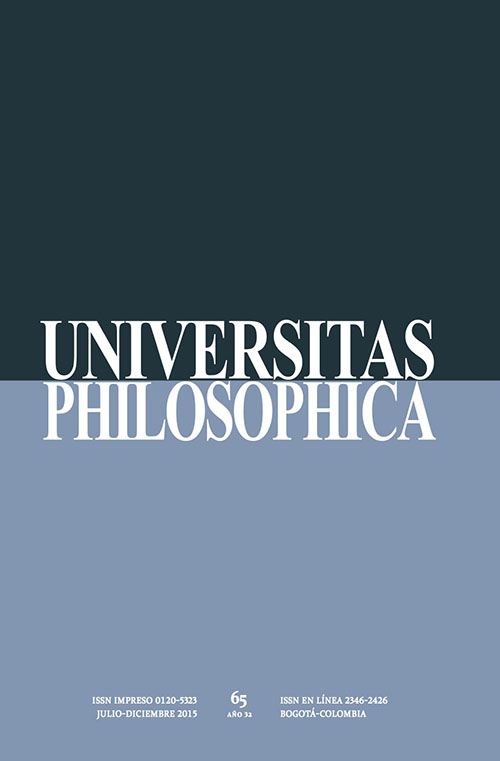Abstract
The work of the Jesuit Juan Martinez de Ripalda On the use and abuse of Divine Thoma’s doctrine (1704) it is a response to the dominical community accusations in the controversy sustained with the Jesuits in the seventeenth century about university academic privileges in the New Kingdom of Granada. The work is not only a historical record of the polemic; it also reveals the thematic content of the philosophical teachings of the Jesuits during the Colonial period. This paper places the general historical context in which the work appeared in order to analyze the modern spirit of the Jesuit Juan Martinez de Ripalda’s doctrine on the nature of human knowledge.
This journal is registered under a Creative Commons Attribution 4.0 International Public License. Thus, this work may be reproduced, distributed, and publicly shared in digital format, as long as the names of the authors and Pontificia Universidad Javeriana are acknowledged. Others are allowed to quote, adapt, transform, auto-archive, republish, and create based on this material, for any purpose (even commercial ones), provided the authorship is duly acknowledged, a link to the original work is provided, and it is specified if changes have been made. Pontificia Universidad Javeriana does not hold the rights of published works and the authors are solely responsible for the contents of their works; they keep the moral, intellectual, privacy, and publicity rights.
Approving the intervention of the work (review, copy-editing, translation, layout) and the following outreach, are granted through an use license and not through an assignment of rights. This means the journal and Pontificia Universidad Javeriana cannot be held responsible for any ethical malpractice by the authors. As a consequence of the protection granted by the use license, the journal is not required to publish recantations or modify information already published, unless the errata stems from the editorial management process. Publishing contents in this journal does not generate royalties for contributors.


